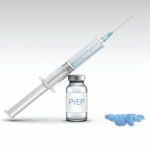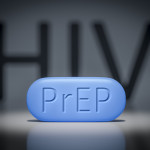In a 2018 survey of men who have sex with men taking pre-exposure prophylaxis (PrEP) in three U.S. cities, about 10% reported sharing their medication with others.
This finding raises concerns that gay, bisexual and other men who have sex with men (MSM) may be accessing PrEP without receiving the medical monitoring that is supposed to go hand in hand with taking Truvada (tenofovir disoproxil fumarate/emtricitabine) or Descovy (tenofovir alafenamide/emtricitabine) for HIV prevention—namely, HIV tests every three months and routine screening for sexually transmitted infections and kidney function.
As described in JAMA Network Open, Gordon Mansergh, PhD, a senior behavioral scientist in the Centers for Disease Control and Prevention’s Division of HIV and AIDS Prevention, conducted a cross-sectional analysis of responses from a 2018 smartphone-based survey of 755 HIV-negative MSM living in Detroit, Atlanta and New York.
The men were 34 years old, on average. Fifty-three percent were white, 19% were Black and 13% were Latino. Thirty-two percent of the men reported currently using PrEP.
Five percent said they had ever used the 2-1-1, or on-demand, PrEP dosing protocol. In this protocol, which has been thoroughly studied only among MSM using Truvada, not Descovy, men take two tablets of Truvada two to 24 hours before anticipated sex. Then, if sex occurs, they take a single dose of Truvada 24 hours after the initial double dose and a final single dose 24 hours after that. This method has been shown to be highly effective at preventing HIV transmissionand is endorsed by the World Health Organization.
After adjusting the data to account for differences in race, age group, educational level and city of residence, the study authors found that men in their 30s were 1.7-fold more likely to report currently using PrEP compared with men age 40 and older.
Men who had a college degree, compared with those who had no more than a high school diploma were 2.0-fold more likely to use PrEP. Compared with those in Atlanta, men in Detroit were 36% less likely to use PrEP.
Of those who reported using PrEP in the 2018 survey, 10.7% said they shared their medication with others.
Among current PrEP users, sharing medication was 12.2-fold more common among those 18 to 29 years old and 9.8-fold more common among those in their 30s compared with those age 40 and older. Those who had at least some graduate education were 3.7-fold more likely to share PrEP compared with men who had some post–high school education or less.
“Regular assessment of the extent and the context of PrEP medication sharing could aid clinicians in creating messages to discourage medication sharing while promoting prescribed and clinically monitored use of PrEP,” the study authors concluded.
To read the research letter, click here.







Comments
Comments